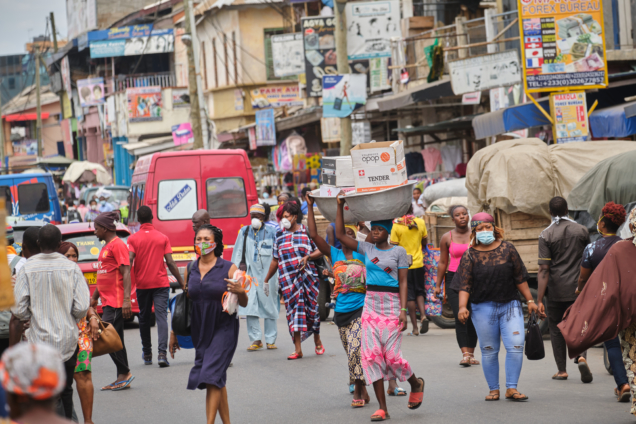Today as we commemorate International Youth Day, there are two essential things I have elected to reflect on: the relevance and importance of this commemoration and the theme for this year’s celebration; “From Clicks to Progress: Youth Digital Pathways for Sustainable Development”.
In adopting resolution, A/RES/54/120, born out of the recommendations from the World Conference of Ministers responsible for Youth, in Lisbon (8-12th August 1998) the 54 session of the General Assembly of the United Nations proclaimed August 12, as International Youth Day.
To begin with, allow me to unequivocally state that I am a firm and unrepentant believer in the potential of young people as essential contributors to society, so for me, the idea of an International Youth Day is a step in the right direction. International Youth Day emphasises the rights of young people to fully have access to quality education, quality healthcare, decent jobs and employment, and complete participation in public life.
This commemoration also recognises and appreciates the contributions of young activists and young volunteers who do everything possible to accelerate positive change around the world – serving as catalysts for peace and prosperity not only in their communities but regionally and globally.
Young people form the largest and most active workforce in our part of the world; thus, they contribute a lot and significantly in terms of manpower, innovations and diversity to sustainable development. According to the office of the UN Secretary Generals envoy on Youth, there are more than 1.8 billion young people (between the ages of 10 – 24) making them the largest generation of youth the world has ever seen. This makes it even more advantageous to leverage the abilities and harness the potential of young people towards sustainable development.
According to the UNDP, digital technologies and data have contributed to at least 70% of the 169 Sustainable Development Goal targets with tremendous impacts spanning across environmental, social and economic dimensions, whilst reducing the cost of these goals by up to USD 50 trillion. It is therefore very evident that young people are leading the charge and transition towards digital transformation with about three-quarters of young people between the ages of 15 to 24 using the internet in the year 2022, a rate higher than all other age groups and a proportion which is expected to grow in subsequent years.
In reflecting on the theme for this year's celebration I decided to soberly ponder over the youth digital pathways for achieving SDG 3: Good Health and Well-being; and particularly focus on some key ethical issues that must be brought to bear in digital well-being.
There is so much evidence that points to the fact that digital technologies can and have improved access to healthcare services, especially in underserved areas. Ethical considerations like ensuring data privacy and security as well as ensuring equitable access, however, must be looked at. Through SDG 4: Quality Education, young people should be empowered through capacity building on digital health knowledge and skills. Ethical goals may include encouraging positive behaviours and improving health outcomes.
Further, in employing SDG 16: Peace, Justice and Strong Institutions, ethical discussions must include young people and address issues of justice in digital health taking cognisance of the fact that ethical use of technologies requires balancing benefits with potential risks and ensuring that the well-being of people remains a priority. There are so many other SDGs that weave into this subject, however, for this article, I chose to reflect on just these.
It is worth noting that the United Nations Sustainable Development Goals – AGENDA 2030 was adopted based on the principle of leaving no one behind, emphasizing a holistic approach to achieve sustainable development for all. To wrap up it is further instructive to note that with the largest generation of youth the world has ever seen, it is impossible to achieve the Sustainable Development Goals without the active participation of young people – the largest generation of changemakers.
Happy International Youth Day!
Charles Lwanga Tengan
MPH, Global Health – KNUST
Research Assistant, Global Health and Infectious Disease Research Group – KCCR.
Latest Stories
-
KNUST TCC-CIMET hosts 3-day international quality management workshop for executives
10 minutes -
There will always be deviants in the fight against galamsey – Martin Kpebu
13 minutes -
‘Not qualifying for AFCON is not a failure’– Lawrence Agyekum
45 minutes -
Bright W. Ladzekpo named ‘Media Leader of the Year’ at 2025 National FMCG Awards
55 minutes -
The Republic of Double Standards: Why you can chop at 16 but can’t carry the chop box to marriage until 18
1 hour -
Ghana Para Athletics Association launches nationwide talent hunt to discover future champions
1 hour -
FoSCel hosts national forum on Sickle Cell at UEW: Calls for unity, awareness and policy action
2 hours -
‘I dreamt of scoring my debut goal against Nigeria’– Lawrence Agyekum
2 hours -
‘Nothing tells me we won’t qualify’ – Stephen Appiah confident in Black Stars’ World Cup chances
2 hours -
Ablakwa urges Israeli Ambassador to respect Ghana’s sovereign right to make independent decisions
2 hours -
We will give everything to qualify for 2026 FIFA World Cup – Lawrence Agyekum
2 hours -
Advisory | Ghana’s credit ratings upgrade: A vote of confidence, but not a passport to borrow
2 hours -
Health Accounting Staff Association agitates over delayed negotiations
3 hours -
Joy Prime launches ‘PrimeTime’ with George Quaye, as Samini sets tone with bold remarks on justice and leadership
3 hours -
More businesses set to reduce prices from July 1, 2025 – GNCC CEO
3 hours

